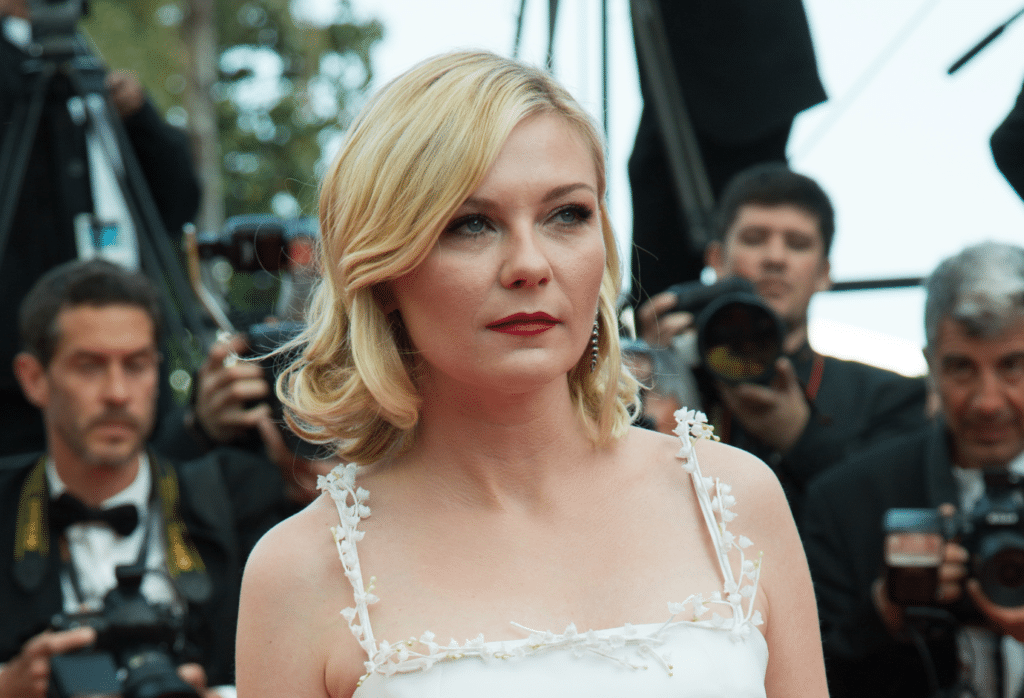Kirsten Dunst has spoken out about Hollywood’s gender pay gap, saying she “didn’t even know there was a place to challenge it,” when she was 17 and starring alongside Tobey Maguire in Sam Raimi’s 2002 movie, Spider-Man.
Dunst, 41, had previously revealed the “very extreme” pay disparity between herself and Maguire, who was 26 when the movie was released.
“The pay disparity between me and Spider-Man was very extreme,” she told the Independent in 2021. “I didn’t even think about it. I was just like, ‘Oh yeah, Tobey [Maguire] is playing Spider-Man.’ But you know who was on the cover of the second Spider-Man poster? … Spider-Man and ME.”
This week, she spoke to the BBC, revealing that despite having more success than her co-star, he was getting paid more.
“Even though I had been in Bring It On and he hadn’t … I had more success in my box office than he did,” she said. “I was 17, I was still learning, at that age I’m still learning my taste in film, I didn’t even think to ask. I didn’t even know there was a place to challenge it. That’s how it is at 17.”
“I definitely grew up in a time with major pay disparity between the lead actor and myself.”
Dunst really did have more box office success compared with Maguire. When the pair signed on to do the film, Dunst had starred in Interview with the Vampire (1994) — for which she’d won a MTV Movie & TV Award for Best Breakthrough Performance; Little Women (1994), Jumanji (1995), The Virgin Suicides (1999), Drop Dead Gorgeous (1999) and Bring It On (2000).
Maguire also had a string of credits to his name throughout the 90s, starring in The Ice Storm (1997), Pleasantville (1998) and The Cider House Rules (1999) — although the movies did less commercially well than Dunst’s movies.
“I was very young and it just felt like at the time, what do you do?” Dunst said in her interview this week.
She also reflected on the sexism in the world of movie criticism — a critical indicator of a film’s box office success or failure. Speaking about her role in Sofia Coppola third feature, Marie Antoinette (2006) Dunst said the movie was “panned” by critics.
“The people that were watching that movie were my age, they weren’t movie reviewers,” she said. “Movie reviewers were old men. So to me, the people that enjoyed Marie Antoinette have now grown up and are like ‘We loved this movie’ but they weren’t the people writing the reviews.”
“We grew up in a world where it’s man-kind, man-made, man this, man that, that’s how we grew up.”
Dunst is currently on a press tour promoting her role in Alex Garland’s latest action movie, Civil War.
“Hopefully, the way I carve my path will help other actresses,” she said. “I’m not in [movies] to have fun. I’m in it to give myself in the most honest, functioning way for my role.”
In Civil War, Dunst plays Lee, a war photographer documenting the dystopian reality of a US amidst a war. The movie, as one reviewer explained last week, is an “observation about the nature of journalism, combat, and divided societies,” and was written by Alex Garland at the very beginning of the global pandemic, four years ago.
“[The movie is] very much a warning [about possible futures]”, Dunst said. “[It] leaves people with so much to think about” and “is a very moving, realistic piece about journalists.”
She added that she was excited to play a lead in an action movie where she didn’t have to be the “damsel in distress”.
Last month, in an interview with Vanity Fair, she revealed how she was continually being offered ‘sad mum’ roles after taking a break from Hollywood.
“I haven’t worked in two years,” Dunst said. “Every role I was being offered was the sad mum. To be honest, that’s been hard for me…because I need to feed myself.”
“The hardest thing is being a mom and…not feeling like, I have nothing for myself. That’s every mother—not just me.”
“I saw the power in women very young. I think that’s helped with…not needing male attention in my career.”
“I think that’s probably why I migrated to so many female directors at a younger age because I didn’t want to feel that way. There’s definitely less good roles for women my age [right now]. That’s why I did Civil War.”


